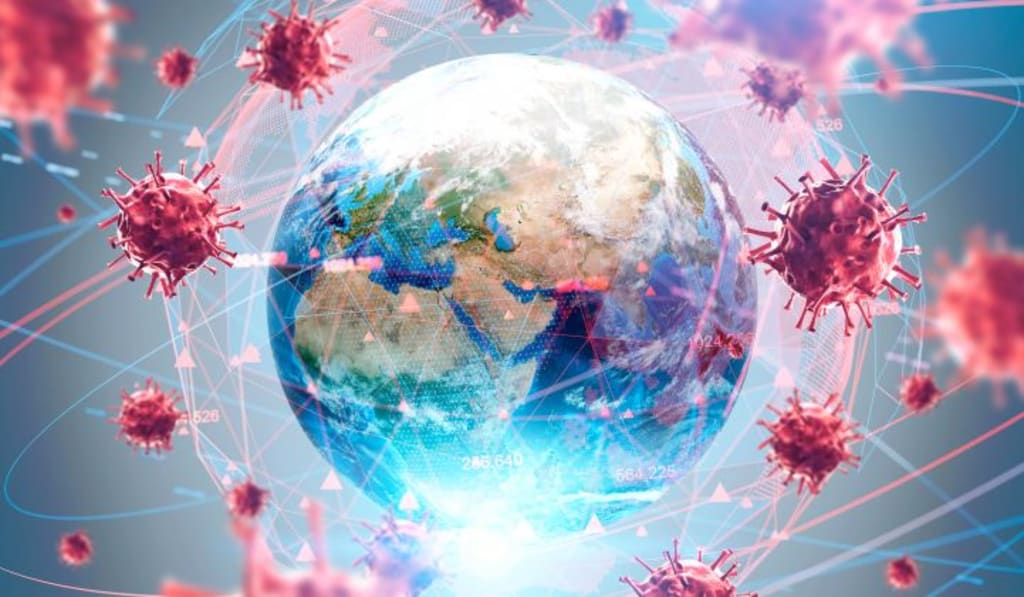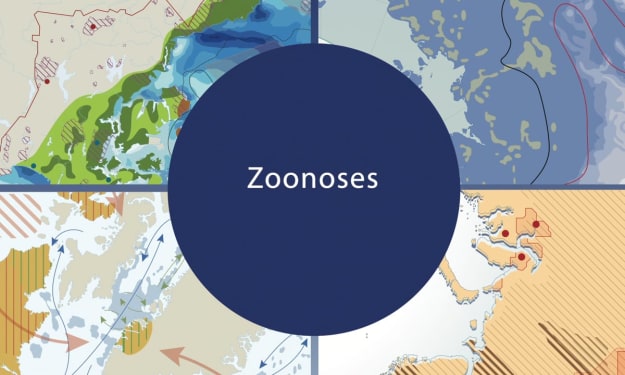Coronaviruses: a call for climate justice?
An examination of the case for reparations and corporate responsibility legislation as regards coronaviruses and other zoonotics.

The interdependence of climate justice and the inalienable right to life are increasingly recognized in both legal and moral terms. Air pollution is a contributory factor in between 7-9 million deaths each year according to the World Health Organization. Legal justice has helped to promote recognition of lethal pollution. Last week, litigants managed to list air pollution as a determinant of the death of a 9 year old girl Ella Kissi-Debrah in a landmark coroner's ruling. This bodes well for NGO’s such as ClientEarth being able to litigate against air pollution.
But what of the victims of zoonotic conditions that have emerged due to a lack of environmental sensitivity towards the animal-human interface? Harvard, Yale, the British Medical Association and the Lancet have detailed how deforestation, fur farming, factory farming and anthrogenic climate-driven changes in migratory helped create the current Coronavirus/COVID pandemic. The same arguments are, as University of Oxford, the University of Leuven and Yale maintain, applicable to the HIV/AIDS pandemic as well as various other conditions that emerged from ill-managed human-animal interaction.
Since at least the colonial era, when variants of HIV/AIDS emerged in 1920s Kinshasa, corporations and governments alike have failed to respect the animal-human interface with devegetation and deforestation driving both HIV/AIDS and Coronavirus/COVID. Just as the antecedents of HIV/AIDS emerged several decades before their official recognition, Spanish virologists found COVID-19 in Barcelona 9 months before its official listing in Wuhan, China. The omission of this fact has not only helped construct a Sinophobic narrative similar to the homophobic and racist rhetoric of the 1980s, but may have led to the flawed mapping of the epidemiological spread.
However, most disturbing of all, the government, proactive in the fight against climate change, has, in many public addresses, treated climate change and COVID as separate issues. As Hansard notes on parliament speeches and policy papers reveal, the government is conscious that deforestation is the determinant of a plethora of zoonotic conditions. Jim Robbins writing in Yale Environment 360 affirms “for a host of ecological reasons, the loss of forest can act as an incubator for insect-borne and other infectious diseases that afflict humans.” To this end, countries such as the UK are introducing laws that make it incumbent on companies to show commodities such as cocoa, soy, rubber and palm oil are ethically sourced. However, the law does not advocate reforestation. Further, it only holds companies accountable to local laws which, in places such as Brazil where Jair Bolsonaro has signed decrees allowing for deforestation, are far from sufficient.
Furthermore, there is consensus across the mainstream political spectrum that wildlife trafficking will continue to create conditions rife for the emergence of zoonotic conditions unless better monitored. William Hague of Richmond explains in his introduction to the Policy Exchange paper on Outbreaks and Spillovers, wildlife trafficking should be regulated with the same vigilance as Weapons of Mass Destruction or terrorism since mistakes can prove as lethal. To this end, The Independent’s Stop the Wildlife Trade launched by Evgeny Lebedev joins the United Nations Environment Programme in calling for regulation on the illegal trade in wild animals.
The race to conserve the animal-human interface is not one merely to preserve biodiversity but also to safeguard human health. The government as well as many corporations are aware this current pandemic proves that both human rights and human health and dependent on protecting our environment. Governments must continue to implement laws to decrease complicity in deforestation and advocate for greater vigilance of wildlife trafficking. Consumers must continue to hold companies accountable for their environmental responsibility by following ethical consumerism standards is the best policy. Furthermore, social and environmental justice activists must interrogate our praxis to promote an approach in which our very survival is contingent on codifying the legal rights of the human-animal interface by better regulating fur farms, wildlife trafficking and factory farms and promoting reforestation.
About the Creator
Selina Whiteley
Published writer, Sel Whiteley, has a BA and a soon to be completed MA in Writing. She has an MA Peace and Conflict Resolution and further qualifications in human and environmental law and earth science. She is a certified science writer.





Comments
There are no comments for this story
Be the first to respond and start the conversation.